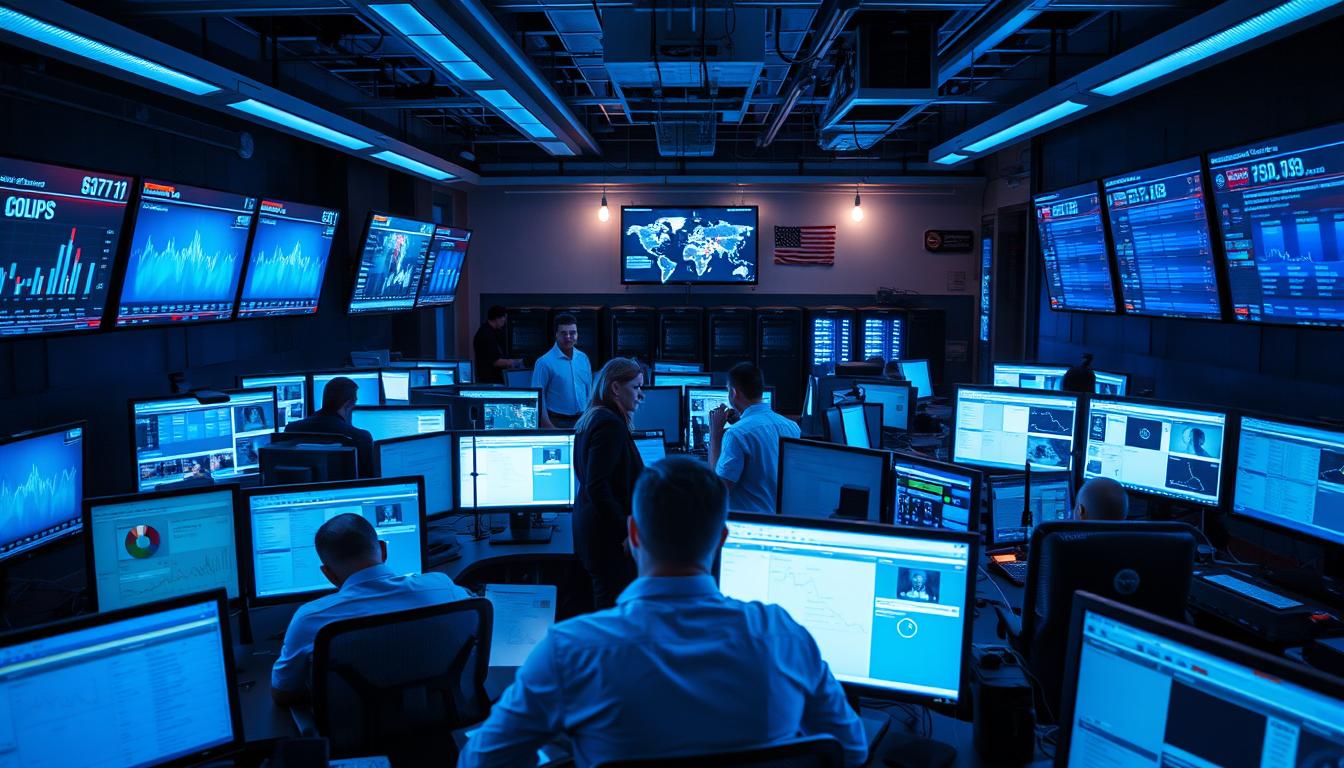How To Built a Media Buying Team that Operates 24/7 Across Time Zones
In 2025’s hyper-connected digital advertising landscape, building a media buying team that operates seamlessly across global time zones has become essential for competitive advantage. With digital ad spend exceeding $800 billion globally and campaigns requiring real-time optimization across multiple markets, 24/7 operations enable businesses to capture opportunities that competitors miss during off-hours.
Modern media buying demands continuous monitoring, instant optimization, and immediate response to market changes across diverse geographical regions. Companies operating 24/7 media buying teams achieve up to 35% better campaign performance and 50% faster response times to market opportunities, creating significant competitive advantages in today’s fast-paced digital ecosystem.
Success requires sophisticated coordination of talent, technology, and processes across multiple time zones while maintaining quality, consistency, and team cohesion. With remote work technologies advancing rapidly and global talent accessibility increasing, building effective 24/7 operations has never been more achievable for forward-thinking organizations.
Key Takeaways
- 24/7 media buying operations provide competitive advantages through continuous campaign optimization and market responsiveness.
- AI-powered automation and advanced collaboration tools enable seamless global team coordination.
- Strategic talent distribution across time zones ensures optimal coverage and work-life balance.
- Modern technology infrastructure supports real-time collaboration and data-driven decision making.
- Cultural competency and regional market expertise enhance campaign effectiveness across global markets.
The Strategic Imperative for 24/7 Media Buying Operations in 2025
Global digital advertising operates in a perpetual state of change, with market conditions, consumer behavior, and competitive dynamics shifting continuously across time zones. Building 24/7 media buying capabilities has evolved from a competitive advantage to a business necessity.
Market Dynamics Driving 24/7 Operations
Real-time market responsiveness has become critical as digital advertising platforms implement algorithmic changes, competitors launch campaigns, and consumer behaviors shift throughout global business hours.
Key drivers for continuous operations include:
- Global Market Coverage: Digital advertising operates across international markets with different peak engagement times and consumer behaviors
- Platform Algorithm Changes: Major advertising platforms frequently update algorithms and policies, requiring immediate response to maintain campaign performance
- Competitive Landscape: Competitors launch campaigns and adjust strategies continuously, demanding real-time competitive response
- Crisis Management: Negative events or brand safety issues require immediate campaign adjustments regardless of local business hours
Performance Benefits of 24/7 Operations
Organizations with continuous media buying operations achieve measurable performance improvements:
- Campaign Performance: Up to 35% better ROI through continuous optimization and immediate response to performance changes
- Response Time: 50% faster reaction to market opportunities, algorithm changes, and competitive threats
- Global Reach: Maximum coverage across all global markets without performance gaps during regional off-hours
- Risk Mitigation: Immediate response capabilities for brand safety issues, budget overruns, and campaign emergencies
Strategic Planning for Global Media Buying Architecture
Building effective 24/7 media buying operations requires comprehensive strategic planning that addresses talent distribution, technology infrastructure, and operational processes across global time zones.
Optimal Time Zone Coverage Strategy
Strategic time zone planning ensures seamless handoffs and optimal coverage while maintaining team efficiency and work-life balance.
Effective coverage strategies include:
- Three-Hub Model: Establishing primary operations centers in Americas, EMEA, and APAC regions for optimal 8-hour overlap coverage
- Follow-the-Sun Operations: Structured handoff processes that ensure continuous campaign management as work passes between regions
- Hybrid Coverage: Combining dedicated regional teams with flexible remote talent for peak demand periods and specialized expertise
- Critical Hour Overlap: Ensuring 2-4 hour overlaps between regions for real-time communication and seamless transitions
Talent Acquisition and Distribution
Building global teams requires sophisticated talent strategies that balance expertise, cultural competency, and operational efficiency:
- Regional Expertise: Hiring team members with deep understanding of local markets, consumer behavior, and cultural nuances
- Technical Proficiency: Ensuring all team members possess advanced skills in relevant advertising platforms, analytics tools, and optimization techniques
- Communication Skills: Prioritizing candidates with strong English proficiency and cross-cultural communication abilities
- Leadership Distribution: Placing experienced team leads in each region to ensure quality control and strategic decision-making
Advanced Technology Infrastructure for Global Operations
Modern 24/7 media buying operations depend on sophisticated technology stacks that enable real-time collaboration, data sharing, and campaign management across global teams.
Essential Technology Components
Integrated technology infrastructure serves as the foundation for successful global media buying operations, enabling seamless collaboration and data-driven decision making.
Core technology requirements include:
- Unified Campaign Management Platforms: Centralized systems that provide real-time access to all campaigns, performance data, and optimization tools
- Advanced Communication Tools: Integrated platforms supporting video conferencing, instant messaging, file sharing, and asynchronous collaboration
- Real-Time Analytics Dashboards: Live performance monitoring systems that alert teams to issues requiring immediate attention
- Automated Workflow Systems: Process automation that ensures consistent handoffs and reduces manual coordination requirements
AI and Automation Integration
Artificial intelligence enhances 24/7 operations through intelligent automation and predictive capabilities:
- Automated Bid Management: AI-powered systems that optimize bidding strategies continuously across all campaigns and time zones
- Anomaly Detection: Machine learning algorithms that identify performance issues and alert appropriate team members automatically
- Predictive Analytics: Advanced forecasting that anticipates optimal times for campaign adjustments and budget reallocation
- Intelligent Alerts: Smart notification systems that route critical issues to the right team members based on expertise and availability
Building and Managing Global Media Buying Teams
Successful 24/7 media buying operations require sophisticated team structures, management processes, and cultural integration strategies that maintain quality and consistency across global operations.
Organizational Structure for Global Success
Effective team architecture balances autonomy with coordination, enabling regional teams to operate independently while maintaining global strategy alignment.
Optimal organizational approaches include:
- Hub-and-Spoke Model: Central strategy team with regional execution hubs that maintain local market expertise
- Center of Excellence: Specialized teams focused on specific platforms, industries, or campaign types that support all regions
- Cross-Functional Integration: Mixed teams combining media buyers, analysts, creative specialists, and account managers
- Flexible Resource Allocation: Ability to shift resources between regions based on demand, opportunities, and market conditions
Cultural Integration and Communication
Managing global teams requires sophisticated approaches to cultural integration and communication:
- Cultural Competency Training: Education programs that help team members understand and respect cultural differences across regions
- Standardized Processes: Consistent workflows and procedures that ensure quality regardless of regional differences
- Language Support: Translation services and multilingual team members to support diverse market requirements
- Regular Team Building: Virtual and in-person events that build relationships and trust across global teams
Operational Excellence and Quality Management
Maintaining consistent quality and performance across 24/7 operations requires robust operational frameworks, quality control systems, and continuous improvement processes.
Quality Assurance Frameworks
Consistent quality standards across all time zones ensure campaign performance and client satisfaction remain high regardless of which team is managing operations.
Quality management strategies include:
- Standardized Operating Procedures: Detailed process documentation that ensures consistent execution across all regions
- Peer Review Systems: Cross-regional review processes that maintain quality while facilitating knowledge sharing
- Performance Monitoring: Real-time quality metrics that track both campaign performance and operational excellence
- Continuous Training: Ongoing education programs that keep all team members current with best practices and platform updates
Handoff and Transition Processes
Seamless transitions between regional teams are critical for maintaining campaign momentum and preventing performance gaps:
- Structured Handoff Protocols: Standardized processes for transferring campaign ownership between time zones
- Detailed Status Documentation: Comprehensive records of campaign status, recent changes, and pending actions
- Real-Time Communication: Live transition meetings that ensure complete information transfer and immediate issue resolution
- Follow-Up Verification: Confirmation processes that ensure receiving teams understand all critical information and priorities
Performance Measurement and Optimization
Effective 24/7 media buying operations require sophisticated measurement frameworks that track both campaign performance and operational efficiency across global teams.
Comprehensive KPI Frameworks
Multi-dimensional measurement tracks campaign success, operational efficiency, and team performance to ensure optimal results across all time zones.
Essential metrics include:
- Campaign Performance: ROI, conversion rates, cost efficiency, and other standard media buying metrics tracked in real-time
- Operational Efficiency: Response times, handoff quality, issue resolution speed, and team productivity measures
- Global Coordination: Communication effectiveness, cross-regional collaboration quality, and knowledge sharing metrics
- Client Satisfaction: Stakeholder feedback, service quality ratings, and relationship strength indicators
Continuous Improvement Processes
Regular optimization ensures 24/7 operations improve continuously and adapt to changing market conditions:
- Weekly Performance Reviews: Regular analysis of both campaign results and operational metrics across all regions
- Monthly Process Optimization: Systematic review and improvement of workflows, procedures, and technology utilization
- Quarterly Strategic Alignment: Comprehensive evaluation of global strategy effectiveness and regional market adaptation
- Annual Technology Assessment: Complete review of technology infrastructure and potential upgrades or replacements
Conclusion: Building Sustainable 24/7 Media Buying Excellence
Creating successful 24/7 media buying operations requires strategic integration of talent, technology, and processes across global time zones. Organizations that master these capabilities achieve 35% better campaign performance and 50% faster market responsiveness, creating substantial competitive advantages in today’s digital advertising landscape.
Success depends on building robust technology infrastructure, implementing sophisticated team management processes, and maintaining consistent quality standards across all operational regions. By focusing on cultural integration, operational excellence, and continuous improvement, companies can create sustainable 24/7 capabilities that drive superior results.
Key success factors for 24/7 media buying operations include:
- Implementing integrated technology stacks that enable seamless collaboration and real-time optimization
- Building culturally competent teams with deep regional market expertise and strong communication skills
- Establishing standardized processes that maintain quality while allowing for regional customization
- Creating comprehensive measurement frameworks that track both campaign performance and operational efficiency
As digital advertising continues evolving at unprecedented speed, the organizations that invest in sophisticated 24/7 capabilities today will capture the greatest market opportunities and achieve sustainable competitive leadership in tomorrow’s global marketplace.
FAQ
What are the main benefits of operating a 24/7 media buying team?
24/7 operations provide up to 35% better campaign performance, 50% faster response times to market changes, continuous optimization across global markets, and immediate crisis management capabilities that competitors with limited hours cannot match.
How many time zones should a global media buying team cover?
Most successful teams use a three-hub model covering Americas, EMEA, and APAC regions with 2-4 hour overlaps between regions. This provides optimal coverage while maintaining reasonable work-life balance for team members.
What technology infrastructure is essential for 24/7 media buying operations?
Essential components include unified campaign management platforms, advanced communication tools, real-time analytics dashboards, automated workflow systems, and AI-powered optimization tools that enable seamless collaboration across time zones.
How do you maintain quality consistency across global media buying teams?
Implement standardized operating procedures, peer review systems, performance monitoring, continuous training programs, and structured handoff protocols that ensure consistent execution regardless of which regional team is managing campaigns.
What are the biggest challenges in managing global media buying teams?
Main challenges include cultural integration, language barriers, maintaining consistent quality standards, coordinating handoffs between time zones, and ensuring effective communication across diverse teams and work schedules.
How can small companies build 24/7 media buying capabilities?
Start with hybrid coverage using freelancers or agencies in key time zones, implement robust automation tools, focus on critical market coverage first, and gradually build dedicated teams as business grows and ROI justifies investment.
What metrics should be tracked for 24/7 media buying operations?
Track campaign performance (ROI, conversions, cost efficiency), operational efficiency (response times, handoff quality), global coordination (communication effectiveness), and client satisfaction across all time zones and team interactions.
How do you handle crisis management across global media buying teams?
Establish clear escalation procedures, maintain 24/7 communication channels, implement automated alert systems, designate regional crisis leads, and create detailed response protocols that can be executed immediately regardless of local time.






